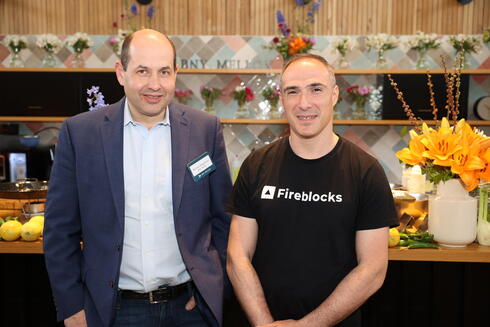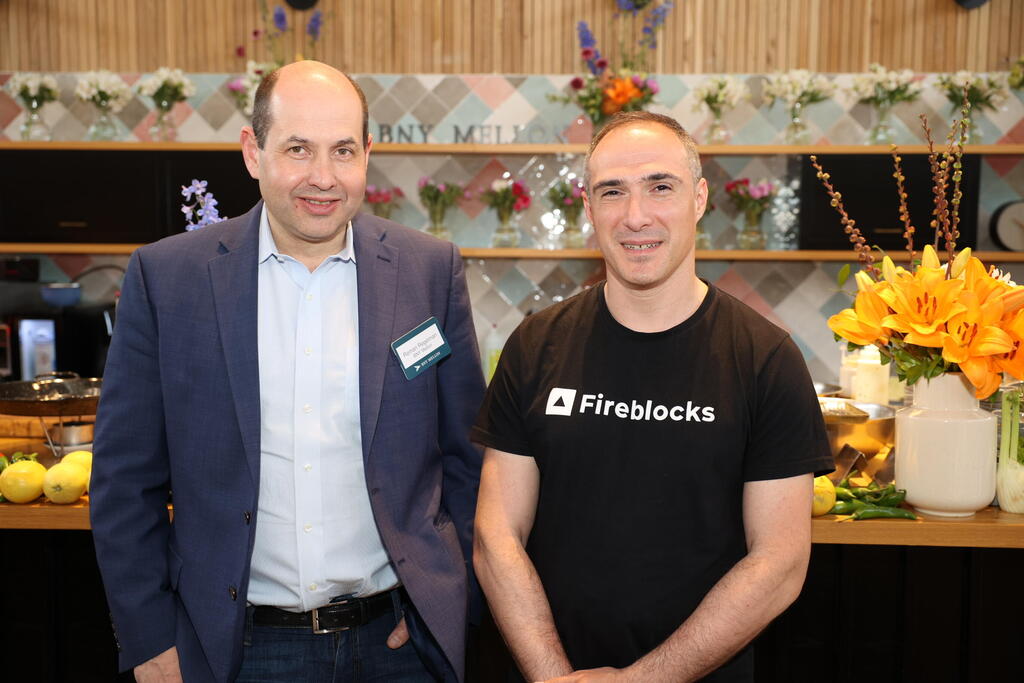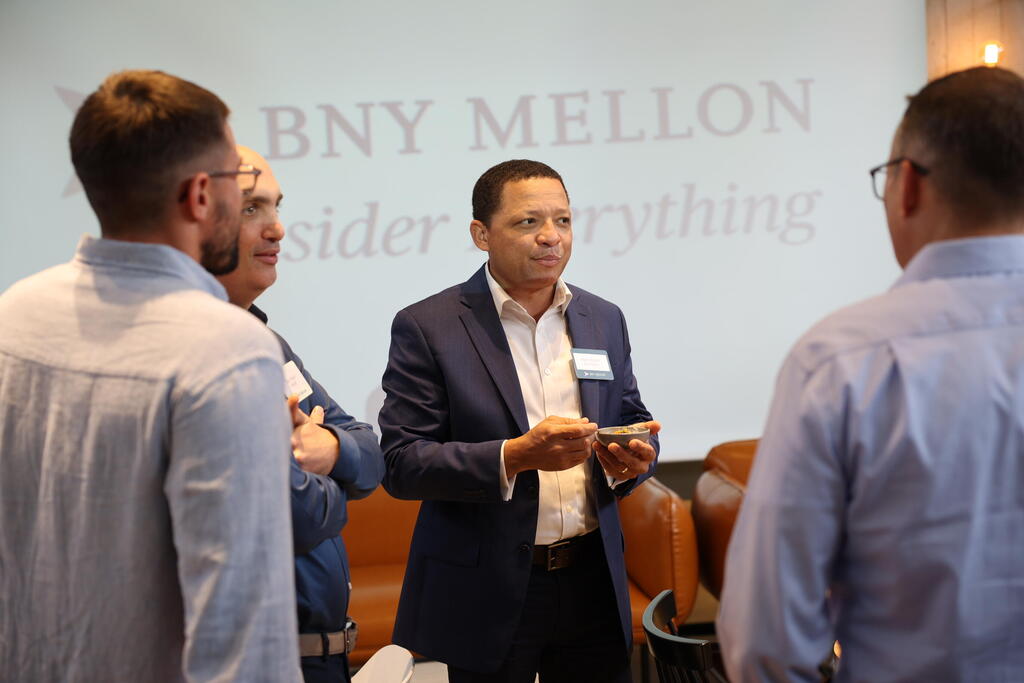
BNY Mellon hosts panel discussion with its Israeli portfolio in Tel Aviv
BNY Mellon’s Roman Regelman, Hans Brown lead a panel on ‘Unlocking the Power of Israeli Innovation through Collaboration’
BNY Mellon held a forum and discussion with its portfolio companies, banks, venture capitalist and market leaders at its Tel Aviv Innovation Centre. BNY Mellon’s CEO of Securities Services, Roman Regelman, and Global Head of Enterprise Innovation and CIO for Corporate Technology, Hans Brown moderated an insightful panel with: Etai Ravid, CEO at BondIT, Roy Saadon, CEO at AccessFintech, Michael Shaulov, CEO at Fireblocks, and Idit Muallem, Partner in Pitango Growth Fund, where the group shared insights and experiences of harnessing the power of Israeli innovation in the fintech space.
3 View gallery


Michael Shaulov, CEO at Fireblocks and Roman Regelman BNY Mellon's CEO of Security Services
(Rafi Delouya)
Regelman highlighted BNY Mellon’s significant and growing footprint in Israel, and said he and fellow executives were visiting for three core reasons: its clients, the space, and the appeal of the fintech sector on a global scale. Ahead of the panel, remarks were made by Christopher Porter, BNY Mellon Israel Country Executive, who praised the “change, growth, and innovation coming out of Israel.”
Hosted by BNY Mellon’s Hans Brown, audience members learned how the global financial institution uses technology to transform the model of the financial industry by fostering a network of participants who share data and standardize workflows. “We want to make data work for the benefit of the owners of the data,” said Saadon, CEO of AccessFintech during the panel.
When asked about specific high-growth areas in tech, Pitango Growth Fund Partner Muallem highlighted how the fintech ecosystem is adjusting to the rise of the creator economy and embedded finance tools. Pitango has three parallel funds - Pitango First, Pitango Growth, and Pitango HealthTech, and the VC firm raised more than $250 million in total.
Shaulov, CEO of the Israeli digital asset custody company Fireblocks, which completed in March 2021 a $133 million funding round from BNY Mellon as well as
hedge fund Coatue Management, investment firm Ribbit Capital, growth equity firm Stripes and SVB Capital, lamented how Israel makes it harder to get access to cryptocurrencies compared to the U.S. or EU, but nonetheless praised the “resurrection” the crypto sector has seen in recent months. “Hopefully there will be regulatory changes,” he told the crowd.
Fireblocks recently became the third largest start-up in Israel, with a value of $ 8 billion - more than three times its value six months before. The company is engaged in creating a secure infrastructure for transactions in cryptocurrencies that are changing the entire financial world.
BondIT provides disruptive technology for institutional and wealth management clients by helping optimize fixed-income portfolios. Its CEO Ravid shared with the crowd how the company was a graduate of BNY Mellon’s Accelerator Program designed for startups. “The program helped us overcome challenges,” he said. “It is difficult to persuade a bank to go with a small company like us. The only way is to collaborate [with them]. Once we understood that, and to work with the bank’s wants and needs, then we could reach that effort. In nine months, we integrated with providers and we went to the market.”
After the panel, Brown spoke on his thoughts of how the banking sector will work with startups and fintechs of all sizes in the future. “Both established financial institutions and startups need to maintain clarity on what problem is, or which client persona they are solving for, and, have clear definitions what success looks like,” he said. “I'm a firm believer that you need to innovate, and you need to be reliable, and you need to be resilient if you do what we do. It's not an ‘or,’ it’s an ‘and,’ we are justly proud of our focus on both.”
BNY Mellon has been in operation for 238 years and has $45.5 trillion in assets under custody and administration, touching around 20% of the world’s investable assets. It runs in 35 markets and operates in more than 100 different markets. In Israel, the company oversees roughly 40 engineers who work out of its Development and Innovation Centre on new technologies for the financial space. Like many sectors, the fintech space has seen some unprecedented investment in Israel, accounting for 17% of the country’s entire investment number in 2021 ($4.5 billion out of $27 billion). This number was reached, in no small part, due to Web3 technologies and development in the crypto space.
“We have been very public about being there to support our clients in a digital asset future,” Brown explained, “and focused on delivering platforms that allow our clients to custody and engage with digital assets with us the same way they do traditional assets now. We see a future where the world’s best institutions will see us as their custodian of choice for digital assets.”
Recently, it was announced that BNY Mellon invested in Talos, a digital asset infrastructure company founded by two Israelis that raised $105 million in a Series B round. The round has valued the provider of digital asset trading technology at more than $1 billion. “We’re here to provide the best value to our clients. As our client needs evolve, we continue to evolve with them and accelerate our ability to anticipate and deliver on their needs,” Brown concluded.














